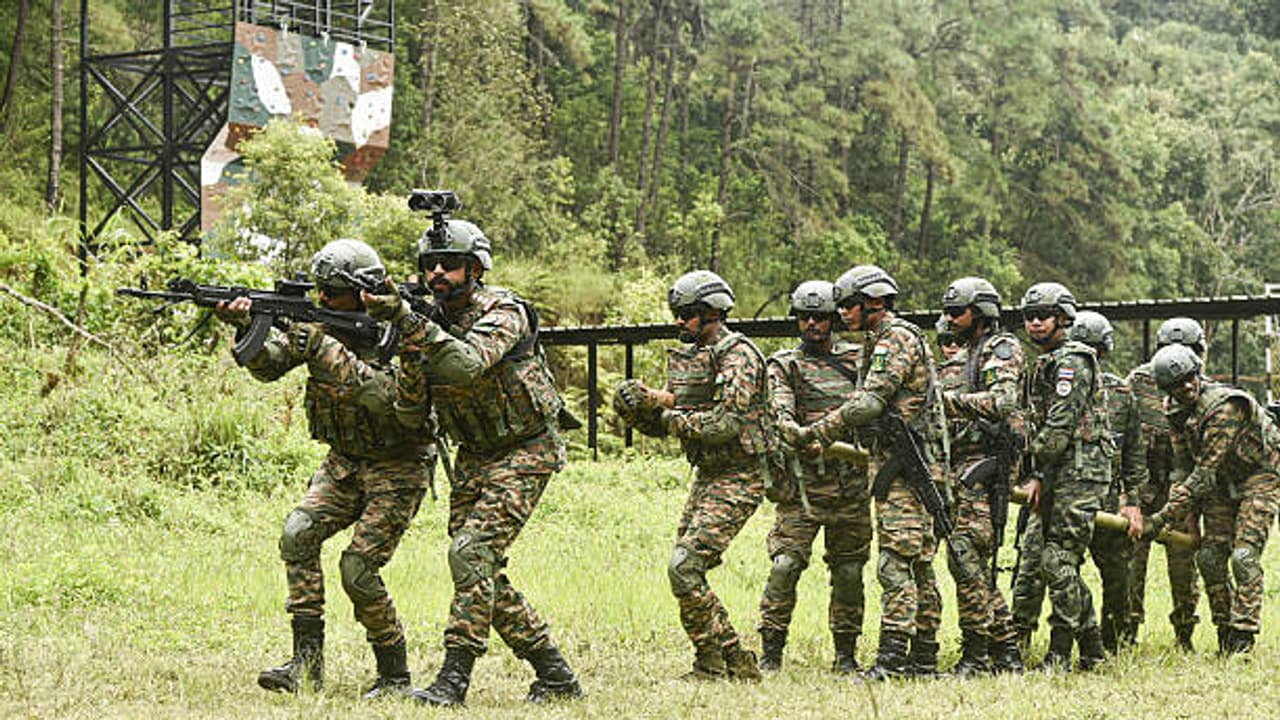New MoD rules on disability pensions have sparked criticism. Soldiers fear cuts despite facing harsh service conditions. Experts, ex-servicemen call for reforms, citing stress, terrain challenges and officer-soldier disparity in pension eligibility.
New Delhi: The new disability pension rules for retired armed forces personnel have sparked a political row between the Union government and the opposition. Introduced by the Ministry of Defence (MoD) on September 21, 2023, the new rules titled ‘Entitlement Rules for Casualty Pension and Disability Compensation Awards to Armed Forces Personnel, 2023’ redefine pension and eligibility criteria for disability pension and replace all previous entitlements.
The revised rules will now fix the percentage of disability and assess the grant of pension accordingly.
What the Ministry of Defence rule says
The MoD has introduced the concept of “impairment relief”, making the previous “disability element” redundant. As a result, armed forces personnel believe that the disability pension is likely to face a drastic cut.
Although the new rules for the first time accommodate lifestyle diseases like hypertension and Type-2 diabetes, the impairment relief will only apply to those who have acquired disabilities while on active duty in high altitude areas or excessive physical exertion during the period of military service.
Officer trainees and cadets, too, have been kept out of the list of eligible beneficiaries but will receive an ex-gratia payment.
The new recommendations were made after a CAG report in March 2023 flagged concerns about almost 36-40% of military officers who retire every year getting disability pensions, while only 15-18% of jawans were receiving the same.
The armed forces had set up an inter-services panel chaired by the Army’s Adjutant General.
The CAG seems to have missed the point that soldiers below officer rank retire much earlier than that of officers; therefore, they go on retirement in a much younger profile in pink health, depending on their age and rank, mostly within forty years, unless someone faced an adverse situation. Therefore, the number of soldiers getting disability pension ought to be less.
On the other hand, officers retire at a much later stage, between 54-60 years of age by time health takes its toll. It may also be noted that number officers by virtue of their work responsibilities, longer service duration under stressful conditions, facing loneliness, working under field conditions even at an older age are likely to have more disability cases.
Calls for repeal
All India Ex-Servicemen Welfare Association demanded a repeal of the new rules in a letter to the MoD.
It criticised the “regressive change in definition of invalidation” which has stated that there would be a requirement of ten years of service to earn an Invalid Pension.
“Earlier all heart diseases were linked with stress of service without any preconditions. However, the new rules of the MoD state that heart diseases shall only be considered as linked with service in case the same occurs in high altitude areas,” the statement said, pointing out that the stress and strain of military service could happen irrespective of the area where soldiers are posted.
The Delhi High Court recently quashed around 300 petitions filed by the Ministry of Defence challenging the grant of disability pensions to soldiers.
A Division Bench of Justices Navin Chawla and Shalinder Kaur on July 1 rejected the Union Government’s challenge to the orders passed by the Armed Forces Tribunal (AFT), which had ordered to provide disability pensions to the soldiers with disabilities who had approached the tribunal.
The Court noted that the purpose of granting disability pension to personnel of the Indian Armed Forces aims to provide necessary financial support to those who have sustained a disability or illness during the course of their service due to service conditions.
Ironically, what the judiciary has observed about the challenges of a soldier’s service conditions, should have been actually considered by the MoD, which is responsible for the welfare of its men and women in uniform.
The geographical terrain in which the soldiers serve range from icy glaciers in the north to thick jungles in the north-west and north-east, marshy conditions in the coastal areas and huge desert in the west.
The MoD tends to forget that from the very first day of service, a soldier is meant to face the enemy and has sworn to go anywhere and everywhere when ordered. Years of service has nothing to do with becoming disabled while working in defence services.
Apart from the harsh geographical terrain, there are stressful service conditions, where the soldiers are constantly in high-alert mode due to insurgency and other internal security threats.
Such an environment, where danger lurks at every corner and there is a constant threat to life, is bound to take a huge toll on the soldiers’ physical and mental health. This leads to various kinds of health issues, which cannot be overlooked.
This is further aggravated by the worries for the family left behind with growing children and single mother.
Thus, in military service, whether in peace locations or operational zones, there is constant stress that may lead to medical conditions such as hypertension and heart diseases.
The main remedy to the soldiers would come from a conscientious MoD, which must look after their morale with compassion and provide necessary facilities instead of putting them under litigation and removing their benefits.
